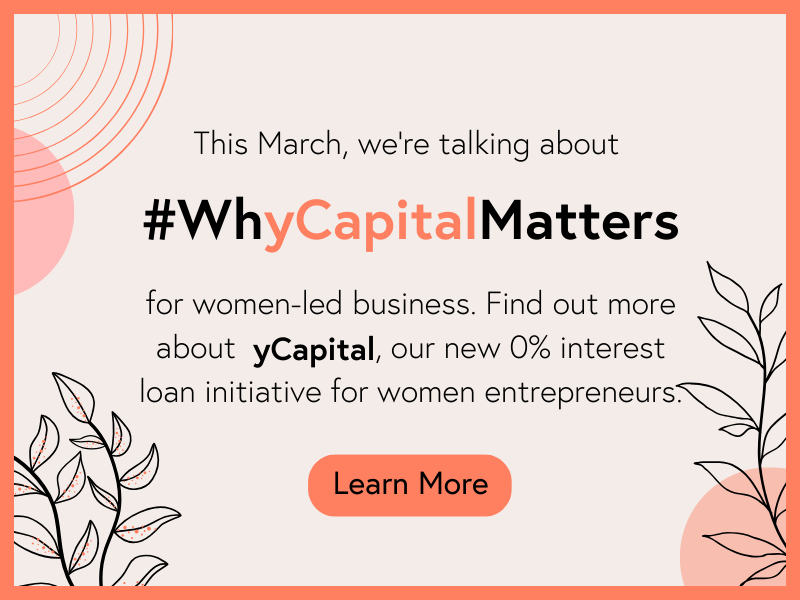
I am not a do-gooder. I am a business woman - Divya Vasant, Founder of Amazi Beauty
I suppose at first glance this is a bit of a weird distinction to make let alone to feel strongly about. But I feel strongly that success should be about meritocracy rather than inherited advantage, and creating platforms that address this is not charitable.
It’s not the work of a do-gooder. That makes it sound like its something that’s just a nice thing to do or a feel-good-side project. It’s not. It’s the way things should be.
The structure of the South African economy was created to support a drastic asymmetry where the majority of the population were used to extract value for a minority. This structure was established in colonialism and entrenched during apartheid.
The provision of infrastructure, education, employment opportunities, ability to own land and assets, wealth creation were all built in favour of a minority, not the majority.
It seems my wanting to pioneer a business founded on the principles of inclusivity makes me a “do-gooder” and not “a serious business person”.
The thing is, I’m not a do-gooder! I really am not. Most “serious business people” have not had to interrogate the asymmetry in access to opportunity and wealth because they’ve been on the side that receives. Interrogating it doesn’t make me do-gooder.
The construct of our economy is fundamentally skewed. 10% of the South African population own 90-95% of our country’s asset base. 40% of the population own the remaining 5-10%. 50% of the population have no meaningful assets, no measurable wealth and no means to create wealth.
If we had to hold industry accountable for the inherited benefit created by the entrenched socio-economic asymmetry, are we questioning capitalism and tampering with market forces?
Capitalism isn’t necessarily about unfair benefit.
If everyone has the same starting point then capitalism says that intrinsic strength, intelligence, work ethic, dedication etc. determine merit and in turn the allocation of additional gains is merit-based. However, if starting points differ then gains are not distributed according to merit but on extrinsic pre-conditions such as wealth (accumulated advantage).
I believe that inclusivity is not about charity. It is not a nice thing to do on the side. It is not a feel-good project. Labelling it that is an attempt to diminish its importance in our economic narrative.
I am the founder of Amazi Beauty, a nail and beauty brand crafted on the principles of inclusivity which we cultivate through two distinct arms: a non-profit and a for-profit.
Our non-profit arm, through a partnership with The Clothing Bank (a global leader in Enterprise Development), founded a training academy that recruits young women that have been deemed “unemployable” and guides them through a carefully crafted 4-6 month training journey.
The goal of this academy is to begin to address the lack of opportunity that has set the starting point for so many women so far back that the do not have the ability to be competitive in the formal economy, have a successful career and create wealth for themselves and their families.
The heart of the training journey is the restoration of self-belief in women who have otherwise been forgotten by our economy. A combination of counselling, coaching, soft skill development and positive reinforcement in parallel with the technical training holistically develop and ready our trainees for a successful career as a professional.
Only the graduates of our Academy are offered employment in our Amazi nail and beauty salons (we do not want to recycle already existing employment but create new employment opportunities).
Our nail and beauty salons are housed in our for-profit arm. The business is exposed to the same dynamics that challenge any service-based business. Our technicians’ performance is industry competitive and importantly their career development is based on merit. We continue our soft-skill development, coaching and mentoring in our stores because we understand that the restoration of self-belief is not something accomplished in 4-6 months. It is also pivotal to underpinning the technician’s progression within the brand.
Amazi offers a platform of opportunities to grow our technicians into future store managers, future educators and trainers, future store owners and ultimately equity holders within the brand. Our belief is that a lack of opportunity does not mean there is a lack of talent – merely a starting point that is further back than it should have been.
At its heart, the brand was founded and structured to be inclusive. It’s inclusive in creating employment, progression and wealth for its employees.
Importantly, it is also inclusive in catering quality product and service that is affordable to the majority of South Africans.
Product and service provision in South African has been carefully crafted over decades to thoughtfully provide to the minority of the population because the construct of our economy makes it easy to.
Why apply deep thinking to how to cater for the majority of the population when the simplest solution would be to take the product or service crafted for the minority, strip out a few expensive bits and voila – a cheap product or service that the majority can now afford. Problem solved, no need to question the fundamental flaw in our economy.
Amazi takes the opposite view. We’re building an offering that brings quality beauty products and services to as wide a market as possible by making what we do affordable and accessible. That means we’re really putting in thought into building a value chain that thinks about affordability without compromising on quality.
We’re only at the beginning of exploring what it means to build an inclusive business but I know what we learn, build and think about are important contributions to the economic narrative that we simply cannot afford not to have in this country.

